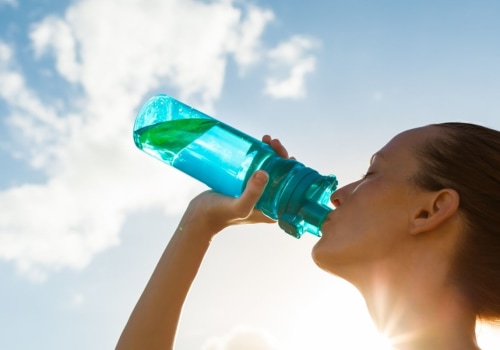A new study published in the journal Obesity found that dietary supplements do not result in dramatic weight loss, as they claim. In fact, it is rare for people taking these supplements to lose a significant amount of weight, research showed. Does it help you lose weight? Natural Medicines, an independent group that looks at supplement research, says there is not enough reliable evidence to qualify it. The National Center for Complementary and Integrative Health states that chitosan has not been shown to be effective in losing weight.
Chitosan usually does not cause side effects, but some people have an upset stomach or constipation. If you are allergic to shellfish, you should not take chitosan, because it is made from shellfish. Natural Medicines says there isn't enough evidence to assess how well glucomannan works for weight loss. Glucomannan can also make it difficult for the body to absorb medicines.
Therefore, take your medicine 1 hour before or 4 hours after using glucomannan. You may be surprised to learn that manufacturers of dietary supplements rarely conduct clinical trials. That is partly why there is little scientific evidence to show that weight-loss supplements work. The various B vitamins (and there are many of them) are said to help stimulate your metabolism and therefore could help you lose weight.
In fact, some weight loss clinics apparently offer injections of B-12 to help you lose weight, speeding up your energy and metabolism, but according to the Mayo Clinic, unless you have a real B-12 deficiency, you're unlikely to get an energy infusion from these injections. As weight decreases, strength typically increases. Weight loss is a combination of diet and exercise. The less body mass a person needs to move, the less strain the muscles and bones will suffer.
Vitamins alone will not help much to promote weight loss. The key to losing weight is lifestyle changes. A healthy diet and exercise will contribute much more to long-term weight loss than vitamins alone. Vitamins are intended to support weight loss, not the only cause.
Vitamin B, D, iron and magnesium are 4 popular supplements for weight loss. Talk to a pharmacist to learn more about vitamins you can try. If you are thinking about taking a dietary supplement for weight loss, talk to your health care provider. Until data from such trials are more readily available, claims about dietary supplements and weight loss should be treated with caution.
There are many, many good health reasons to make sure you are getting enough fiber in your diet; it is good for your heart, blood sugar, and for maintaining a weight that is healthy for your particular body. As an added bonus, lifestyle changes that help you lose weight may also improve your mood and energy level and reduce your risk of heart disease, diabetes, and some cancers. These are a variety of pills, powders and liquids that are marketed with the promise that they can help people lose weight. Dietary supplements have side effects and may interfere with the absorption of over-the-counter or prescription medicines.
Like other dietary fibers, it is supposed to help you lose weight by blocking the body's absorption of fat into food. To find out if a weight loss supplement can help people lose weight safely and keep it off, it is necessary to study larger groups of people for a longer time. In a couple of small studies, people who took 7-keto-DHEA, along with moderate exercise and a low-calorie diet, lost significantly more weight than those who received a placebo (a dummy pill). Some of the most popular supplements claim to improve nutrition, increase energy, build muscle or burn fat.
After 16 weeks, that group did not lose more weight (an average of less than 3 pounds) than the other group. Larger groups of people should be examined for extended periods of time to determine if a weight loss product can help people safely. So while vitamin D+ calcium isn't a magic formula for weight loss, at least according to this study, it might be healthy to make sure your diet includes enough of those nutrients or to talk to your doctor about taking supplements, if you're interested in that route. Most Americans don't get enough fiber in the foods they eat, so it's important to make sure you prioritize fruits and vegetables, nuts, beans, and whole grains, especially because it's much better to get fiber from what you eat than from supplements, because these foods have a number of health benefits that go beyond what a supplement can give you.
In addition, you should know that the FDA has cracked down on some weight-loss supplements that contained prescription drugs that were not listed on the label. And, when studies are conducted, they usually only involve a limited number of people taking supplements for a few weeks or months at a time. . .




